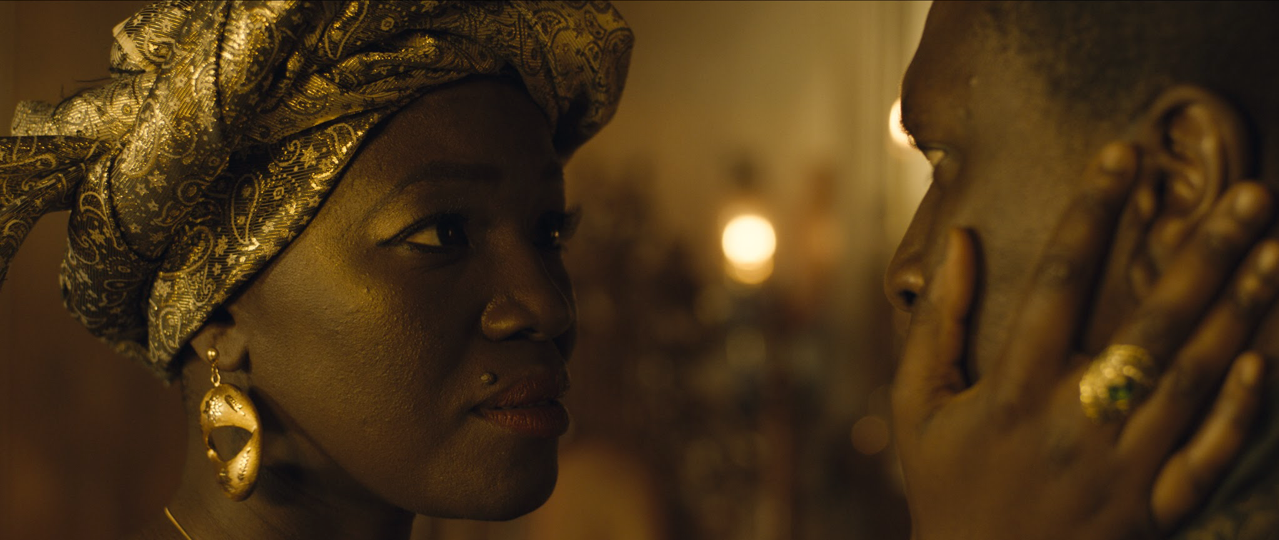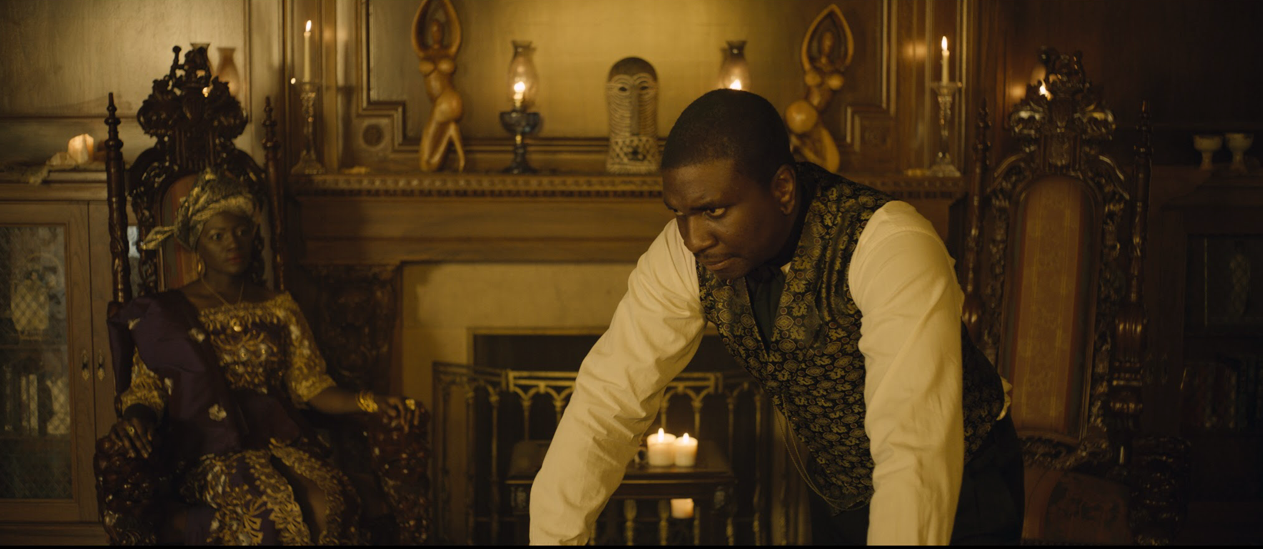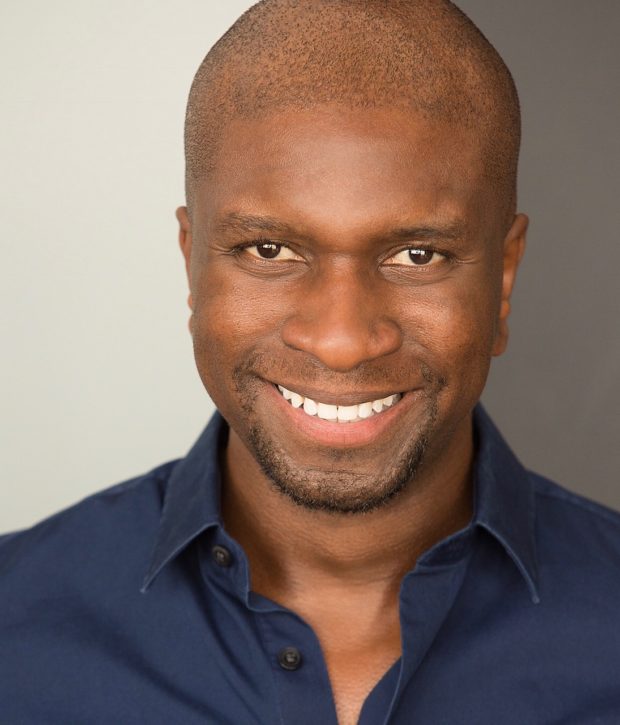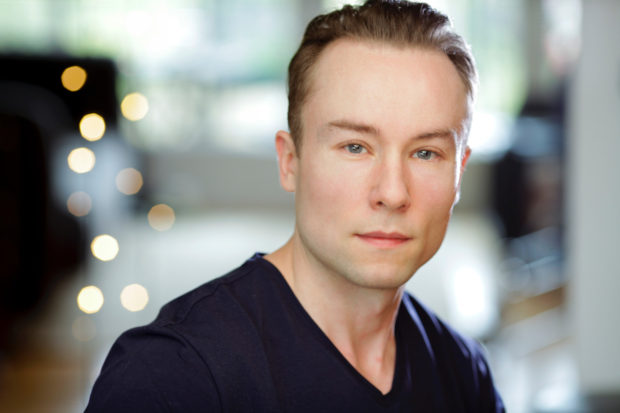You have no items in your cart. Want to get some nice things?
Go shoppingAdetokumboh M’Cormack (writer/director/actor/producer) and Raphael Corkhill (actor/producer) talk about their lives, the journey to becoming storytellers, role film has to play in changing the narrative of Africa and their upcoming feature film The German King which tells the true, untold story of the Cameroonian king and freedom fighter, Rudolf Duala Manga Bell, who led an uprising on the eve of World War I against Kaiser Wilhelm II’s oppressive colonial rule.
AM: I remember my first play at the age of 3 at the kindergarten back home in Sierra Leone. I was wearing a mask, fell off the stage and couldn’t wait to get back on! But those early experiences were when I fell in love with telling stories, which stayed with me growing up in Nigeria and Kenya before I moved to the US to train professionally as an actor at SUNY Purchase. Now, I love telling stories that show “us” – specifically Africans – in a different light from the negative and stereotypical images we typically see: terrorists, scammers, drug dealers and child soldiers. We are dignified, proud, smart, so many of us are regal, we have a rich history. But the experiences that I have seen on film do not reflect my own experience, and so I really felt the need to tell a different narrative.
RC: I didn’t start acting until after university so you have a headstart there! I did other kinds of performance: I grew up in London and South Wales and was a chorister in the Queen’s personal choir, the Chapel Royal, I played the ‘cello in various orchestras before becoming a professional DJ, which is how I made money while at college at Princeton. But storytelling, specifically through acting, has been a constant presence in my life. Remind me – how did you first learn about King Rudolf?
AM: It was probably just after the fiftieth time I had an audition to play a terrorist. Growing up I saw these amazing stories like Braveheart or Gladiator – all these really amazing heroes… who were white! It seemed that time and again we were being told that our African heroes did not exist of course they existed – we just hadn’t had an opportunity to tell their stories. So I started researching African heroes and thousands of stories came up. I just gravitated to King Rudolf.

RC: When you first told me about his story it was like you were uncovering layer upon layer of history and heroism. The fact that King Rudolf not only knew Kaiser Wilhelm II personally, but they’d grown up together as young men and been close friends; the fact that their sons also later grew up together in Germany as friends; the fact that King Rudolf’s identity and loyalties are pretty divided as a result of his early experiences all were evidence of this.
AM: You have this Cameroonian prince who grew up in Germany with Wilhelm and was pretty much brainwashed into becoming German – he spoke German, dressed in a German way and felt German to his core. Then he came back to Cameroon to become king after his father passed and started seeing what tyrannical German rule was doing to his people. Subjugated, enslaved, killed. Not just in Cameroon but also in what is now called Namibia – the near extermination of the Nama and Herero peoples.
We are especially keen to partner with investors who seek who understand the power of underrepresented perspectives to shape and strengthen group identity, cultural richness and social cohesion the world over.
Adetokumboh M’Cormack
RC: The way their relationship is shown in the film also reveals a different side to Kaiser Wilhelm. He was very much the cruel, irrational dictator he is generally presented as. But the story also shows the nuance of his character: the deep love he has for his family, the duty he feels towards Germany. Even the warped sense of betrayal he feels after King Rudolf’s uprising. Ironically, those same factors motivate Rudolf, the main difference of course being that Rudolf’s eyes are wide open, whereas Wilhelm is blinded by his own insecurities. The narrative Wilhelm created for himself was crystal clear in the script and the film asks us to consider our own narratives and prejudices, which can sometimes be buried quite deep.
AM: The more I read about King Rudolf’s life, the more I realized we were so similar. I had a bit of an identity crisis when I came to America and I remember for the first time being called the N-word. I remember turning around being like “who are they talking to?” To realize that I was that N-word that these people were talking about – in their eyes that was how they saw me. It was a really interesting thing to see that as much as I thought of myself in a certain way, at the end of the day, those who hated me because of my skin color or those who didn’t understand me because of my skin color saw me in a completely different light than I saw myself.
RC: In the same way that an individual can experience a real split between their self-image and the way the rest of the world sees them, so entire regions can experience the same disconnect between the way they see themselves and the way they are characterised throughout the world. The German King seeks to undo that completely. In fact we go through that process with Rudolf as we see him wrestle with his loyalties before coming to the realisation that he must do everything possible, whatever the cost to himself, to fight for justice, and sacrifice his own freedom and wellbeing for that of Cameroon.
AM: Building on the buzz from our short film, which has now qualified Academy Award consideration, we’re definitely going to dive deeper into the relationship and complexities of the friendship between King Rudolf and Kaiser Wilhelm in the feature-length film. And we’re also going to see some of the other people who were instrumental in bringing about change. The Africans who fought in WWI, and also ones also on the forefront of bringing about the end of German colonial rule within Africa. We start shortly after the Scramble for Africa so you get to understand why the colonial powers were in Africa in the first place.

RC: The script is ready, the budget and schedule are set, and we’re chomping at the bit to start shooting. Of course, to do justice to the story and King Rudolf’s legacy, the film requires financing and we are currently seeking investment. In addition to the drama and intrigue of this epic moment in history, the film will have powerful battle sequences that portray the violent nature of German colonialism and the Cameroonian uprising. We are especially keen to partner with investors who seek to retell the narrative of Africa, who wish to give a platform to minority viewpoints, and who understand the power of underrepresented perspectives to shape and strengthen group identity, cultural richness and social cohesion the world over.

Adetokumboh M’Cormack was born in Freetown, Sierra Leone and began his career as an actor at the age of twelve. With a background in Fine Arts from Purchase College Acting Conservatory in New York, His credits include leading roles in movies like Columbia Pictures’ blockbuster Battle Los Angeles, Blood Diamond alongside Leonardo DiCaprio, and Captain America: Winter Soldier. He has also starred in hit TV shows like Lost, 24 and NCIS and currently voices the character ‘Isaac’ on the Netflix animated tv series Castlevania. Wanting to tell more stories about people underrepresented in mainstream media, M’Cormack also writes, produces and directs. His works include the award winning short film Irish Goodbye and October 96.

Born in the UK, Raphael grew up in London and South Wales. He went to United States to attend Princeton University where he studied history with a focus on colonialism in West Africa after which, winning a full scholarship, he went on to attend drama school at the University of Southern California. Followng this he established himself as a video game voice actor during which time he worked with Adetokumboh. In 2014 Raphael moved to New York to focus on film, television and theatre, playing the role of ‘Hamlet’ in the groundbreaking play United States of Banana by the eminent Puerto Rican writer Giannina Braschi. Raphael’s onscreen work includes The Blacklist (NBC), Happy! (SyFy), The Hunt (Amazon) and, most recently, an acclaimed performance in The Goldfinch (Warner Bros.) alongside Angel Elgort and Nicole Kidman.





